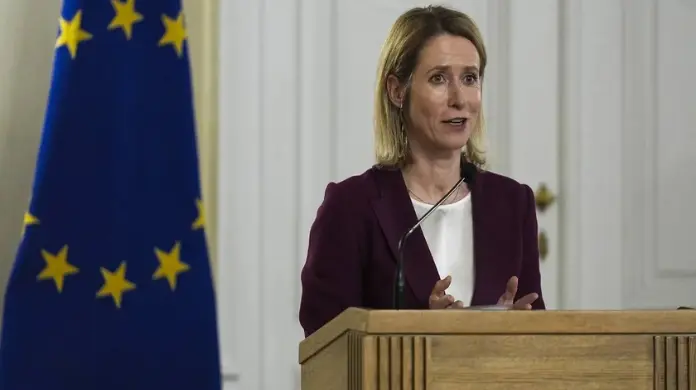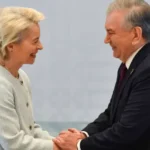The European Union has issued a firm rejection of any attempts to alter the demographics or territorial boundaries of the Gaza Strip, amid rising concerns over the worsening humanitarian situation in the region. The EU’s top foreign policy official, Kaja Kallas, made the remarks during a joint press conference held with Polish Foreign Minister Radoslaw Sikorski following an informal gathering of EU foreign ministers in Warsaw on Thursday.
Kallas, who serves as the High Representative of the European Union for Foreign Affairs and Security Policy, emphasized that the bloc remains united in its stance against forced displacement and territorial reconfiguration in Gaza. “The majority of European countries agreed that the situation in Gaza is untenable and rapidly deteriorating,” she said. “Plans to escalate military operations in Gaza will only result in further suffering for the civilian population.”
Read Also: Global Challenges in Copyright Protection for Audiovisual Authors Discussed at WIPO
The EU’s position comes in response to mounting international criticism of Israel’s handling of the conflict in Gaza and its new aid delivery plan, which many believe falls short of addressing the dire needs of Palestinians trapped in the enclave. In her remarks, Kallas stated unequivocally, “We reject any attempt at demographic or territorial change in Gaza, as well as any form of forced displacement of the Palestinian population.”
She urged the Israeli government to take immediate steps to alleviate the crisis by lifting the longstanding blockade on Gaza and ensuring unimpeded humanitarian access to the affected population. “Humanitarian aid must reach those in need without delay,” Kallas stressed, “and it must adhere to the core principles of humanitarian assistance: humanity, impartiality, neutrality, and independence.”
The EU’s call comes as the humanitarian situation in Gaza continues to deteriorate, with international aid agencies warning of severe shortages of food, medicine, and basic supplies. Human rights organizations have also raised alarm over the impact of ongoing military operations on civilians, including widespread displacement and infrastructure destruction.
In the same press conference, Kallas addressed other pressing foreign policy concerns, including the future of EU sanctions on Syria. Responding to recent comments by French President Emmanuel Macron, who suggested he would advocate for ending sanctions on Syria when they are up for renewal in June, Kallas offered a cautiously optimistic view. “We are currently in discussions regarding possible sanctions relief for Syria,” she said. “I was pleased to read that President Macron supports easing the sanctions, and I hope this positive direction will be reflected at the working level as well.”
She further noted that if a new government in Syria expresses willingness to act constructively, the EU should consider a reciprocal approach. “If there is a new regime that is saying the right things, then it makes sense to make a positive opening move and observe their response,” Kallas added.
On the ongoing war in Ukraine, Kallas expressed skepticism about Russia’s willingness to pursue peace. “Russia shows no sign of wanting peace,” she stated. “Ukraine has already agreed to an unconditional ceasefire over 50 days ago, yet Russia continues its aggression.”
Kallas concluded her remarks by urging continued support for Ukraine. “We must increase pressure on Russia to push them toward a peace agreement,” she said. “At the same time, we must provide Ukraine with the support it needs to defend itself.”
The EU’s comments reflect a broader effort to recalibrate its foreign policy in response to rapidly evolving conflicts in both the Middle East and Eastern Europe, underscoring the bloc’s commitment to international law, human rights, and the principles of humanitarian engagement.
This article is originally published on: middleeastmonitor









